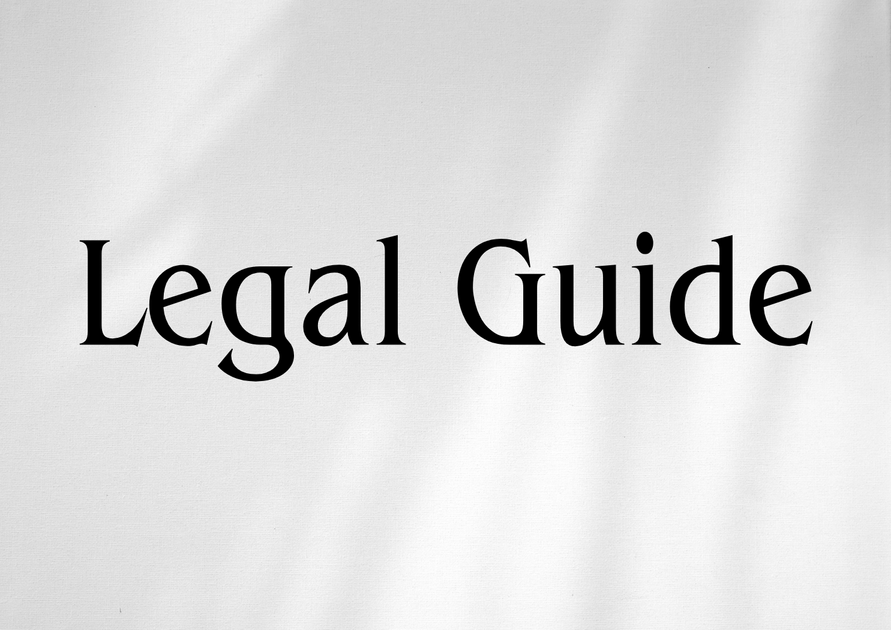Introduction: Shaping the Future of UAE Arbitration with Robust Evidence and Document Production Rules
Arbitration has become the preferred dispute resolution mechanism for commercial and civil matters in the United Arab Emirates (UAE). This preference is due to its flexibility, confidentiality, and efficiency, especially compared to traditional litigation. However, the success of arbitration proceedings—whether seated in Dubai, Abu Dhabi, or under offshore rules—relies heavily on a clear understanding of evidence and document production rules. As the UAE modernizes its arbitration framework, particularly with recent updates culminating in Federal Decree-Law No. 6 of 2018 (the UAE Arbitration Law) and subsequent ministerial guidelines, businesses, in-house counsel, and legal practitioners must adapt to ensure both compliance and strategic advantage in dispute resolution.
This article delivers an in-depth consultancy analysis of current legal standards, best practices, and practical strategies for evidence and document production in UAE arbitration. Whether you are a business leader preparing for a potential dispute, or legal counsel guiding clients through complex arbitrations, mastering these aspects is critical—not only to avoid costly procedural missteps but also to maximize your likelihood of a favorable award. We also examine compliance risks and provide side-by-side comparisons of old and new legal standards, supported by actionable case studies, to offer a roadmap for proactive and compliant arbitration strategies in the UAE as we move into 2025 and beyond.
Table of Contents
- Legal Foundations of Evidence and Document Production in UAE Arbitration
- Recent Legal Updates: Federal Decree-Law No. 6 of 2018 and Beyond
- Core Principles Governing Evidence in UAE Arbitration
- Document Production in UAE Arbitration: 2025 Standards
- Practical Insights: Managing Submission, Confidentiality, and Disclosure
- Comparing Old and New Evidence Rules: A Side-by-Side Guide
- Case Studies and Hypothetical Scenarios
- Risks of Non-Compliance and Strategic Compliance Approaches
- Conclusion and Future Outlook
Legal Foundations of Evidence and Document Production in UAE Arbitration
The UAE Arbitration Framework: Key Instruments and Authorities
The legal landscape governing arbitration evidence and document production in the UAE is primarily anchored by Federal Decree-Law No. 6 of 2018 (the UAE Arbitration Law). This law, issued by the Ministry of Justice and published in the Federal Legal Gazette, represents a watershed moment in UAE dispute resolution, aligning the nation’s arbitration landscape with leading international models such as the UNCITRAL Model Law. Supplementary ministerial guidelines and institutional arbitration rules—particularly from the Dubai International Arbitration Centre (DIAC), the Abu Dhabi Commercial Conciliation and Arbitration Centre (ADCCAC), and the Abu Dhabi Global Market (ADGM)—further refine the operational details of evidence and document handling.
Official Sources:
- UAE Ministry of Justice
- UAE Government Portal
- Abu Dhabi Global Market (ADGM)
- Dubai International Arbitration Centre (DIAC)
- UAE Ministry of Human Resources and Emiratisation
Why Evidence Rules Matter in Arbitration
Unlike litigation, where statutory rules of evidence are imposed, arbitration parties often adopt bespoke procedures that balance flexibility with fairness. However, without clear rules or adherence to up-to-date standards, parties risk procedural unfairness, challenges to enforcement, or unnecessary delays. Grave errors in document handling could jeopardize an otherwise strong claim or defense.
Recent Legal Updates: Federal Decree-Law No. 6 of 2018 and Beyond
Federal Decree-Law No. 6 of 2018 (UAE Arbitration Law)
The UAE Arbitration Law introduced several pivotal changes, fundamentally reshaping evidence and document production in domestic arbitrations:
- Article 33: Empowers arbitral tribunals to determine the admissibility, relevance, materiality, and weight of any evidence.
- Article 35: Confers authority on tribunals to request the production of documents, including electronically stored information and originals.
- Article 36: Sets out procedures for obtaining testimony from witnesses and experts—including remote testimony using advanced technology.
- Article 41: Permits the use of written statements in lieu of oral evidence (a key modernization that accelerates the evidentiary phase).
- Article 43: Stipulates that parties may agree on evidentiary procedures, failing which tribunals have inherent discretion.
Additionally, periodic Cabinet Resolutions and Ministerial Circulars—most notably those guiding electronic evidence and procedural digitization—continue to shape the evolving landscape. Recent updates as of 2024-2025 further clarify standards around confidentiality, data privacy, and cross-border disclosure.
Institutional Rules and Their Role
Leading UAE arbitration centers (e.g., DIAC, ADCCAC, DIFC-LCIA) complement the statutory framework with granular rules addressing:
- Procedures for Redfern Schedules and other document requests
- Safeguarding confidential or commercially sensitive materials
- Digital submissions and e-disclosure protocols
- Remedies for non-compliance, including adverse inferences or cost awards
Core Principles Governing Evidence in UAE Arbitration
Tribunal Discretion—A Defining Feature
Arbitral tribunals in the UAE, under Article 33 of the 2018 Law, wield broad discretion to determine evidentiary procedures. This is a clear departure from the rigid evidentiary codes of the UAE Civil Procedures Law (Federal Law No. 11 of 1992), which previously applied in the absence of arbitration-specific statutes. Now, tribunals can:
- Establish what constitutes admissible evidence (including electronic and foreign-sourced documents)
- Decide the form and sequence of submissions
- Limit or expand the scope of document production
Equality and Fair Treatment
Article 26 of the UAE Arbitration Law mandates that tribunals treat parties equally, ensuring each is given a “full opportunity” to present evidence. Non-compliance may render awards unenforceable or subject to annulment by UAE courts, with potentially severe business repercussions.
Evidentiary Burden and the Redfern Schedule
The common law-derived Redfern Schedule has become a best-practice tool, aligning with institutional rules and ensuring transparent, reasoned document requests. It requires parties to specify:
- What documents are sought
- Relevance and materiality
- Basis for objections (e.g., privilege, confidentiality)
- Tribunal decisions
Document Production in UAE Arbitration: 2025 Standards
Overview of Document Disclosure Obligations
Parties are expected to produce documents on which they rely and, where ordered, those requested by the opposing party or the tribunal. Non-disclosure, whether deliberate or accidental, may result in adverse inferences or cost penalties.
| Key Aspect | Pre-2018 Civil Procedures Law | Current UAE Arbitration Law (2018+) |
|---|---|---|
| Document Disclosure | Limited, often only on request of court; rigid application | Broader, tribunal-driven, flexible, and party-agreed |
| Electronic Documents | No formal recognition | Expressly included under Art. 35, enabling e-disclosure |
| Tribunal Powers | Subject to court approval | Direct, inherent powers (Art. 33, 35) |
| Party Agreement | Secondary to court procedure | Primary determinant of procedure |
| Confidentiality | Minimal, ad hoc protections | Codified and tribunal-enforced |
Confidentiality and Data Privacy
Confidentiality of arbitration proceedings remains sacrosanct under the UAE Arbitration Law and is supplemented by institutional protocols. Recent ministerial guidance (as of 2024) underscores compliance with Federal Law No. 45 of 2021 (the UAE Personal Data Protection Law), requiring parties to:
- Safeguard all disclosed data
- Adopt secure digital transmission channels
- Seek tribunal orders for the redaction or limitation of access to business-sensitive documents
Practical Insights: Managing Submission, Confidentiality, and Disclosure
Step-by-Step Guide to Effective Document Handling
- Early Case Assessment: At the onset of arbitration, conduct a comprehensive review of all documents—electronic and hardcopy—potentially relevant to the dispute.
- Document Categorization: Create clear classifications based on relevance, privilege, and confidentiality.
- Draft a Redfern Schedule: Standardize document requests, objections, and tribunal decisions.
- Digital Security: Utilize encrypted platforms for confidential submissions and obtain tribunal approval for electronic service and storage solutions.
- Agreement on Procedures: Use the preliminary arbitral meeting (procedural hearing) to agree on scope, timelines, and formats for evidence production.
- Seek Protective Orders: For business-sensitive material, proactively seek confidentiality orders or protocols from the tribunal.
Using Technology to Your Advantage in 2025
Leading UAE arbitration centers increasingly expect parties to submit evidence via secure online portals, and tribunals may order remote witness or expert testimonies. As such, organizations should invest in:
- Robust document management systems compatible with arbitration platform requirements
- Staff training on e-disclosure and cybersecurity
- Regular audits for potential compliance risks or gaps in digital record-keeping
Visual Suggestion: Process Flow Diagram
Recommended Visual: “Lifecycle of Document Production in UAE Arbitration”—A flowchart illustrating assessment, request, disclosure, objections, and tribunal decision stages, highlighting secure data handling at each step.
Comparing Old and New Evidence Rules: A Side-by-Side Guide
| Aspect | Pre-2018 (Civil Procedures Law) | 2018+ (UAE Arbitration Law & Ministerial Guidance) |
|---|---|---|
| Tribunal Authority | Limited; depends on court intervention | Autonomous and broad; tribunal discretion is primary |
| Evidence Format | Primarily hard copy; oral testimony required | Electronic, digital, and written statements permitted |
| Cross-Border Evidence | Complicated; court assistance often needed | Permitted; use of technology and remote procedures allowed |
| Confidentiality | Not codified; discretionary | Explicitly required and enforceable by tribunal |
| Electronic Evidence | Not recognized | Recognized and actively used under Art. 35 and digital guidance |
Case Studies and Hypothetical Scenarios
Case Study: Construction Dispute—Effective vs. Defective Document Disclosure
| Scenario | Actions Taken | Outcome |
|---|---|---|
| Effective Disclosure | Company X identified all relevant electronic correspondence; submitted a full Redfern Schedule and sought confidentiality orders for trade secrets. | Tribunal admitted key documents; award enforced in record time. No successful challenge to confidentiality, supporting the firm’s market reputation. |
| Defective Disclosure | Company Y failed to produce certain project files due to poor data management. The tribunal drew adverse inferences and penalized Y in costs. | Y lost a critical counterclaim and faced reputational damage, plus additional costs from remedial document searches. |
Hypothetical: HR Document Production in Employment Arbitration
Consider an employer managing a wrongful termination claim in arbitration. Under the 2018 Law, the HR team must quickly secure all performance records, contract variations, and related digital communication. Proactive organization ensures compliance, prevents opposition requests for court intervention, and provides a robust defense against employee allegations.
Risks of Non-Compliance and Strategic Compliance Approaches
Main Risks of Failing to Comply with Evidence and Document Rules
- Adverse Inferences: The tribunal may assume missing evidence is unfavorable, seriously weakening a party’s position.
- Cost Penalties: Non-compliant parties may be ordered to cover all or part of their opponent’s costs (Article 46, Arbitration Law).
- Challenge or Annulment of Awards: Failure to meet procedural standards may lead to annulment under Article 53.
- Reputational Harm: Parties known for poor compliance may face greater scrutiny in future disputes and among business partners.
Strategic Compliance Checklist
| Action Item | Considerations |
|---|---|
| Early Document Audit | Start as soon as dispute arises; include hardcopy and electronic records. |
| Redfern Schedule Preparation | Engage legal counsel to draft comprehensive and justified requests. |
| Data Privacy Assessment | Review under Federal Law No. 45 of 2021; secure storage/transfer protocols. |
| Procedural Agreements | Negotiate and document rules for evidence with the opposing party at the outset. |
| Training & Awareness | Educate internal teams on compliance, confidentiality, and timeliness of submissions. |
Conclusion and Future Outlook
The recent overhaul of UAE arbitration laws, anchored by Federal Decree-Law No. 6 of 2018 and supported by institutional and ministerial guidelines, has firmly established internationally aligned best practices for evidence and document production. As we move into 2025, organizations operating or contracting within the UAE must treat evidence compliance as a critical business function, not an afterthought. Effective strategies include ongoing staff training, investment in secure digital infrastructure, and engagement of experienced arbitration counsel.
Looking ahead, the UAE’s commitment to digital transformation and legal modernization will continue to raise the bar for evidentiary discipline in arbitration. Ongoing regulatory updates—particularly regarding data privacy and cross-border disclosure—are poised to impact both procedural fairness and business viability. By adhering to contemporary standards and acting preemptively, companies can safeguard their interests, shorten dispute timelines, and minimize risks of adverse legal or reputational outcomes.
Key Takeaways
- Early action, robust document management, and legal counsel involvement are paramount.
- Non-compliance risks are severe, affecting both the outcome and enforceability of arbitral awards.
- Continuous adaptation to ministerial updates, especially regarding data privacy and digital submissions, is necessary to stay compliant and competitive.
For tailored guidance on evidence and document production in UAE arbitration or to develop a compliance strategy specific to your business, engage with our specialist legal consultants.



